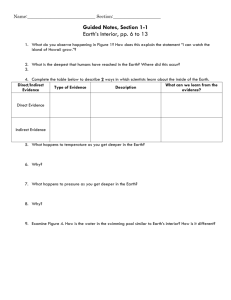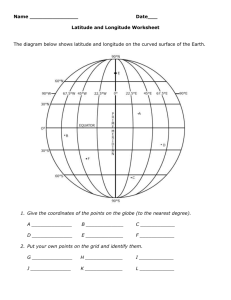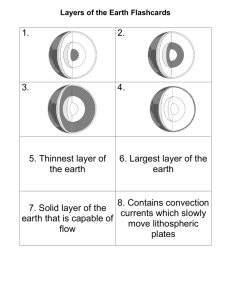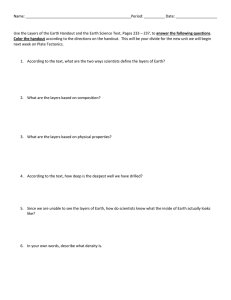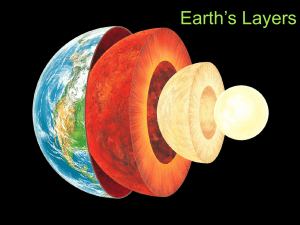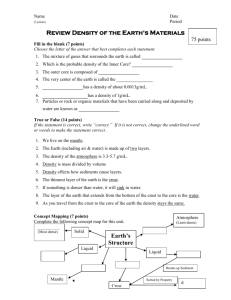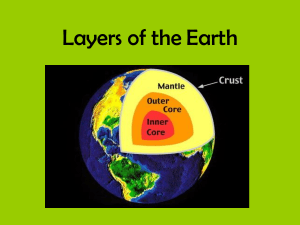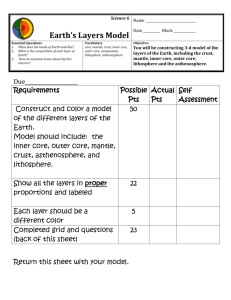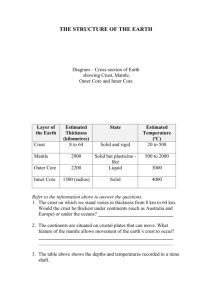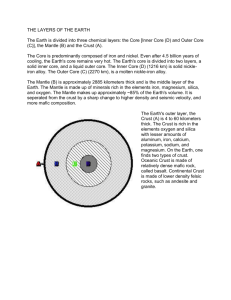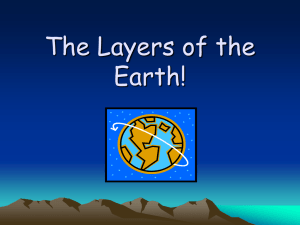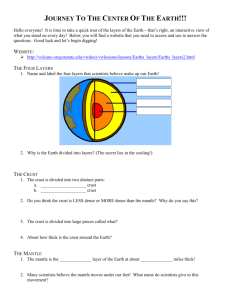Layers of the Earth Song: Earth Science for Kids
advertisement
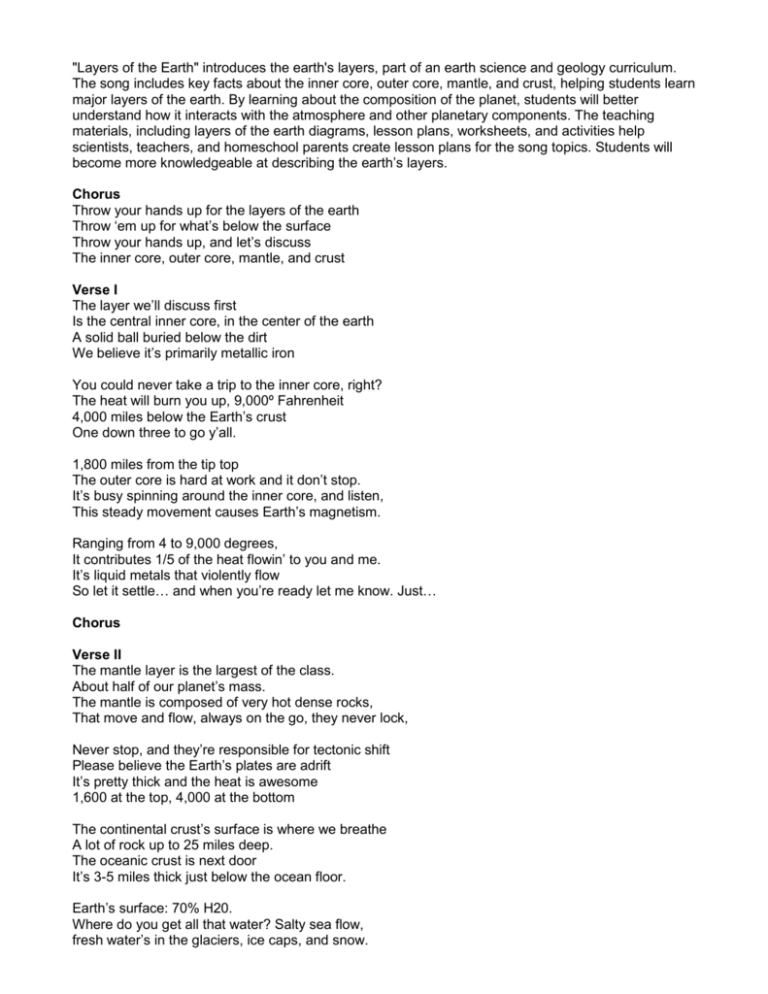
"Layers of the Earth" introduces the earth's layers, part of an earth science and geology curriculum. The song includes key facts about the inner core, outer core, mantle, and crust, helping students learn major layers of the earth. By learning about the composition of the planet, students will better understand how it interacts with the atmosphere and other planetary components. The teaching materials, including layers of the earth diagrams, lesson plans, worksheets, and activities help scientists, teachers, and homeschool parents create lesson plans for the song topics. Students will become more knowledgeable at describing the earth’s layers. Chorus Throw your hands up for the layers of the earth Throw ‘em up for what’s below the surface Throw your hands up, and let’s discuss The inner core, outer core, mantle, and crust Verse I The layer we’ll discuss first Is the central inner core, in the center of the earth A solid ball buried below the dirt We believe it’s primarily metallic iron You could never take a trip to the inner core, right? The heat will burn you up, 9,000º Fahrenheit 4,000 miles below the Earth’s crust One down three to go y’all. 1,800 miles from the tip top The outer core is hard at work and it don’t stop. It’s busy spinning around the inner core, and listen, This steady movement causes Earth’s magnetism. Ranging from 4 to 9,000 degrees, It contributes 1/5 of the heat flowin’ to you and me. It’s liquid metals that violently flow So let it settle… and when you’re ready let me know. Just… Chorus Verse II The mantle layer is the largest of the class. About half of our planet’s mass. The mantle is composed of very hot dense rocks, That move and flow, always on the go, they never lock, Never stop, and they’re responsible for tectonic shift Please believe the Earth’s plates are adrift It’s pretty thick and the heat is awesome 1,600 at the top, 4,000 at the bottom The continental crust’s surface is where we breathe A lot of rock up to 25 miles deep. The oceanic crust is next door It’s 3-5 miles thick just below the ocean floor. Earth’s surface: 70% H20. Where do you get all that water? Salty sea flow, fresh water’s in the glaciers, ice caps, and snow.
